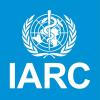2021 Articles
U.S. & European Research Societies Set
To Join and Become BioEM

November 29, 2021
Own Radiation Group Challenges Basis for “Possible” Cancer Risk
Trends for Aggressive Brain Tumors Unresolved

June 11, 2021
Stressed the Importance of Modulations and Strict Standards
Founder of Russian National Committee on Non-Ionizing Radiation Protection

May 9, 2021
A Chance To Vote on RF–Cancer Link
But Disqualified for Having Ties to Industry
February 16, 2021
Alexander Lerchl’s Unfounded Claims of Fabricated Data from Vienna Lab
13-Year Campaign of Disinformation

February 8, 2021
